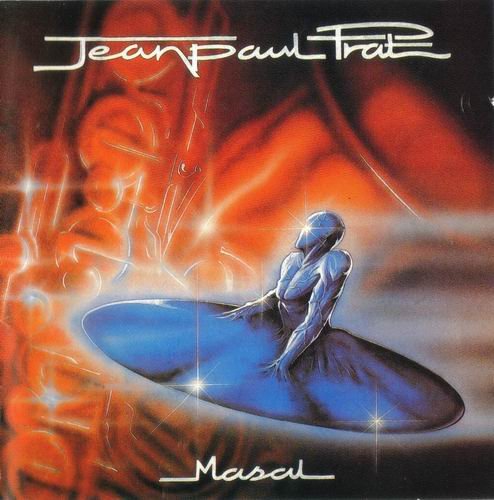Angela Gheorghiu, Roberto Alagna, Michel Plasson - Bizet: Carmen (2003)
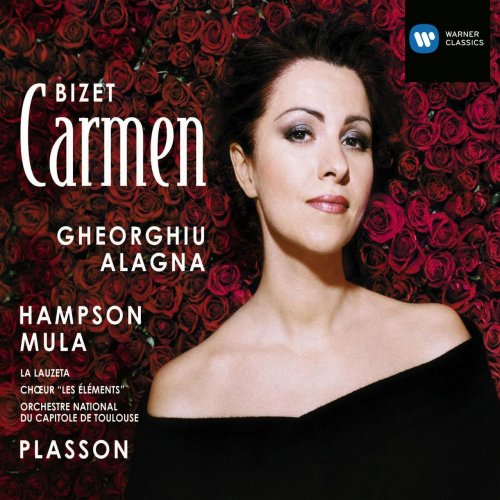
Artist: Angela Gheorghiu, Roberto Alagna, Michel Plasson
Title: Bizet: Carmen
Year Of Release: 2003
Label: Warner Classics
Genre: Classical, Opera
Quality: FLAC (tracks)
Total Time: 02:38:26
Total Size: 714 Mb
WebSite: Album Preview
Tracklist: Title: Bizet: Carmen
Year Of Release: 2003
Label: Warner Classics
Genre: Classical, Opera
Quality: FLAC (tracks)
Total Time: 02:38:26
Total Size: 714 Mb
WebSite: Album Preview
CD 1:
01. No. 1. Prélude
02. Act 1. No. 2. Scène et Choeur: Sur la place chacun passe
03. Act 1. No. 2. Scène et Choeur: Regardez donc cette petite
04. Act 1. No. 2a. Scène et Pantomime: Attention! Chut! Attention! Taisons-nous!
05. Act 1. No. 3. Choeur des gamins: Avec la garde montante
06. Act 1. No. 3. Récitatif: Une jeune fille charmante...Et la garde descendante
07. Act 1. No. 3 bis. Récitatif: C'est bien lÃ, n'est-ce pas
08. Act 1. No. 4. Choeur des cigariÃ..res: La cloche a sonnÃ
09. Act 1. No. 4. Choeur des cigariÃ..res: Voyez-les! Regards impudents...
10. Act 1. No. 4. Choeur des cigarières: Mais nous ne voyons pas la Carmencita!...
11. Act 1. No. 5. Habanera: L'amour est un oiseau rebelle
12. Act 1. No. 5a. Air et Choeur: L'amour est enfant de bohème (original version)
13. Act 1. No. 6. Scène: Carmen! sur tes pas, nous nous pressons tous!
14. Act 1. No. 6 bis. Récitatif: Quels regards! Quelle effronterie!
15. Act 1. No. 6 bis. Récitatif: José!...Micaëla...No. 7. Duo. Parle-moi de ma mère!
16. Act 1. No. 6 bis. Récitatif: José!...Micaëla...No. 7. Duo. Parle-moi de ma mère!
17. Act 1. No. 8. Choeur: Que se passe-t-il donc là-bas?...
18. Act 1. No. 9. Chanson et Mélodrame: Mon officier, c'était une querelle...
19. Act 1. No. 9. Récitatif. Où me conduisez-vous?
20. Act 1. No. 10. Séguedille et Duo. Près des remparts de Séville
21. Act 1. No. 11. Final. Voici l'ordre; partez
CD 2:
01. Entracte
02. Act 2. No. 12. Chanson bohème. Les tringles des sistres tintaient
03. Act 2. No. 12 bis. Récitatif. Messieurs, Pastia me dit...
04. Act 2. No. 13. Choeur. Vivat! vivat le Toréro!
05. Act 2. No. 14. Couplets. Votre toast, je peux vous le rendre...Toréador, en garde!
06. Act 2. No. 14 bis. Récitatif. La belle, un mot
07. Act 2. No. 14 ter. Sortie d'Escamillo
08. Act 2. No. 14 quater. Récitatif. Eh bien! vite, quelles nouvelles?
09. Act 2. No. 15. Quintette. Nous avons en tête une affaire
10. Act 2. No. 15 bis. Récitatif. Mais qui donc attends-tu?
11. Act 2. No. 16. Chanson. Halte là! Qui va là?
12. Act 2. No. 16 bis. Récitatif. Enfin, c'est toi!...No. 17. Duo. Je vais danser en votre honneur
13. Act 2. No. 17. Duo. La-la-la-la...Attends un peu, Carmen
14. Act 2. No. 17. Duo. Au quartier! pour l'appel!
15. Act 2. No. 17. Duo. La fleur que tu m'avais jetée
16. Act 2. No. 17. Duo. Non, tu ne m'aimes pas
17. Act 2. No. 17. Duo. Non! Je ne veux plus t'écouter!
18. Act 2. No. 18. Final. Bel officier, l'amour vous joue
19. Act 2. No. 18. Final....plus tard!... La guerre, c'est la guerre!
CD 3:
01. Entracte
02. Act 3. No. 19. Sextuor et Choeur. Écoute, écoute, compagnon, écoute
03. Act 3. No. 19. Sextuor et Choeur. Notre métier est bon
04. Act 3. No. 19 bis. Récitatif. Reposons-nous une heure ici, mes camarades
05. Act 3. No. 19 bis. Récitatif. Que regardes-tu donc?
06. Act 3. No. 19 bis. Récitatif. Carmen 'Que regardes-tu donc
06. Act 3. No. 20. Trio. Mêlons! Coupons!
07. Act 3. No. 20. Trio. Voyons, que j'essaie à mon tour
08. Act 3. No. 20. Trio. En vain pour éviter
09. Act 3. No. 20. Trio...la mort...Parlez encor, parlez mes belles
10. Act 3. No. 20 bis. Récitatif. Eh bien?...Eh bien! nous essayerons
11. Act 3. No. 21. Morceau d'ensemble. Quant au douanier, c'est notre affaire
12. Act 3. No. 22. Récitatif. C'est des contrebandiers
13. Act 3. No. 22. Air. Je dis, que rien ne m'Ãpouvante
14. Act 3. No. 22 bis. Récitatif. Je ne me trompe pas
15. Act 3. No. 22 bis. Récitatif. Quelques lignes plus bas...No. 23. Duo. Je suis Escamillo, Toréro de
16. Act 3. No. 23. Duo. Elle avait pour amant
17. Act 3. No. 23. Duo. Enfin ma colere...Quelle maladresse
18. Act 3. No. 24. Final. Prends garde à toi, Carmen
19. Act 3. No. 24. Final. TorÃador, en garde!
20. Entracte
21. Act 4. No. 25. Choeur. À deux cuartos! À deux cuartos!
22. Act 4. No. 26. Marche et Choeur. Les voici! voici la quadrille!
23. Act 4. No. 26. Marche et Choeur. Si tu m'aimes, Carmen
24. Act 4. No. 26. Marche et Choeur. Carmen, un bon conseil
25. Act 4. No. 27. Duo et Choeur final. C'est toi!...C'est moi!
26. Act 4. No. 27. Duo et Choeur final. Tu ne m'aimes donc plus?
Performers:
Carmen - Angela Gheorghiu
Don José - Roberto Alagna
Escamillo - Thomas Hampson
Frasquita - Elizabeth Vidal
Le Dancaïre - Nicolas Rivenq
Le Remendado - Yann Beuron
Mercédès - Isabelle Cals
Micaëla - Inva Mula
Moralès - Ludovic Tézier
Zuniga - Nicolas Cavallier
Orchestre du Capitole de Toulouse
Conductor - Michel Plassoz
Choeur "Les Eléments"
La Lauzeta
Choeur D'Enfants De Toulouse
After three decades of Carmen in opéra comique-style, each one offering its own brand of authenticity, here we are back in the 19th century with the old grand opera version, with the Guiraud recitatives, tacked on after Bizet’s death. This was the way Carmen was usually performed until the 1950s, when producers and scholars started to reconsider the original. As we now know, there is little chance of anyone arriving at what might be termed a definitive Carmen, and it has to be said that many singers and listeners prefer it with the recitatives, mostly because opera singers find handling the pages of unaccompanied dialogue very difficult.
This isn’t the place to go into all the differences, great and small, that exist between the two approaches, but EMI have given us something unexpected here – the first recording of the aria composed for Carmen’s entrance. It was thought at the time to be unsatisfactory, so Bizet tried again, and produced the Habanera. Even so, it is said that Galli-Marié, the first Carmen, insisted on a dozen rewrites. Angela Gheorghiu sings it after the Habanera, as if for an encore. The words are almost identical in places and the music is not quite unknown as the theme was published in the Oeser edition of the score as part of a supplement.
Winton Dean, in his biography of Bizet (Dent: 1975), calls it a ‘trivial and rhythmically impoverished little tune’. This seems rather harsh. In fact it’s reminiscent of Offenbach, and particularly of the song for Nicklausse in the Venice scene of Hoffmann. (Perhaps Bizet was trying to take advantage of Galli-Marié’s skills – she had just starred in Offenbach’s Fantasio.) Anyway, Gheorghiu sings it with much charm, and I’m very glad to have heard it.
So to the main business: any Carmen depends on the contributions of conductor, soprano (or mezzo) and tenor. Michel Plasson draws some very fine playing indeed from the Toulouse orchestra, and his choice of speeds seems just right, never resorting to extreme effects. The one moment when things get a bit sluggish is in the Card scene, but I suppose he is letting Gheorghiu have as much breathing space as she needs; the chest tone she uses for the cries of ‘La mort!’ is amazingly forceful. She has set a precedent here, I think, being the first soprano ever to have recorded the roles of both Carmen and Micaëla (the latter for Sinopoli, Teldec 10/96). Her portrayal has little of the easy sensuality of such celebrated interpreters as Grace Bumbry or Teresa Berganza. The obvious comparisons are with two other famous Toscas, who, like Gheorghiu, had never sung Carmen on stage when they recorded it – Leontyne Price (for Karajan, RCA), and Maria Callas (for Prêtre, EMI).
Gheorghiu and Roberto Alagna have obviously worked very hard to achieve some fine moments, a beautifully soft ending to ‘Là-bas, dans la montagne’, and an almost visible change of mood towards the end of the Séguedille, as Carmen begins to work her charms. Gheorghiu cannot help sounding rather imperious at times, and there is no exchange of remarks at the moment when she throws the flower; I miss the superb scorn that Callas brings to the exclamation at this point, ‘Epanglier de mon âme’.
Alagna has done nothing better recently: he is really inside the character, and portrays the man’s descent into degradation. There is little sense of him pushing the tone – as in his Manrico – although his voice is much lighter than many other famous Don Josés (Corelli for Karajan, Domingo for Abbado, Vickers, on HMV Classics for Frühbeck de Burgos). This is all in his favour, though, for moments such as the beautifully realised ending to ‘Parle-moi de ma mère’.
Other roles are well taken: Thomas Hampson presents Escamillo as a very jovial sort of fellow, Inva Mula as Micaëla is better in the Act 1 duet than she is in her aria. With Elizabeth Vidal as Frasquita and Nicolas Rivenq as Dancaïre, the cast is strong. The sound is uncomplicated, though Carmen’s castanets (some very classy playing) seem to be coming from quite a distance away from her.
With dozens of Carmens available on disc, it’s impossible to recommend only one. This will be a pleasure for the many admirers of Plasson, Gheorghiu and Alagna. If you want a bargain Carmen, consider Berganza with Abbado (DG), or Bumbry with Frühbeck de Burgos, both with dialogue. If you like the old-fashioned recitatives, go for Resnik with Schippers, a particular favourite of mine, on Double Decca, the sound still impressive after 40 years. Some maintain that Solange Michel, in the historic Opéra-Comique set under Cluytens (EMI), is the best Carmen of all. Be that as it may, once I got to the final duet in this 21st-century Carmen, I was completely gripped – by Alagna, who, while sounding distraught, still manages to produce some lovely tone, and by Gheorghiu, who, though she may never sing the role on stage, is a remarkably dramatic lady-in-distress for the microphone. -- Patrick O'Connor
This isn’t the place to go into all the differences, great and small, that exist between the two approaches, but EMI have given us something unexpected here – the first recording of the aria composed for Carmen’s entrance. It was thought at the time to be unsatisfactory, so Bizet tried again, and produced the Habanera. Even so, it is said that Galli-Marié, the first Carmen, insisted on a dozen rewrites. Angela Gheorghiu sings it after the Habanera, as if for an encore. The words are almost identical in places and the music is not quite unknown as the theme was published in the Oeser edition of the score as part of a supplement.
Winton Dean, in his biography of Bizet (Dent: 1975), calls it a ‘trivial and rhythmically impoverished little tune’. This seems rather harsh. In fact it’s reminiscent of Offenbach, and particularly of the song for Nicklausse in the Venice scene of Hoffmann. (Perhaps Bizet was trying to take advantage of Galli-Marié’s skills – she had just starred in Offenbach’s Fantasio.) Anyway, Gheorghiu sings it with much charm, and I’m very glad to have heard it.
So to the main business: any Carmen depends on the contributions of conductor, soprano (or mezzo) and tenor. Michel Plasson draws some very fine playing indeed from the Toulouse orchestra, and his choice of speeds seems just right, never resorting to extreme effects. The one moment when things get a bit sluggish is in the Card scene, but I suppose he is letting Gheorghiu have as much breathing space as she needs; the chest tone she uses for the cries of ‘La mort!’ is amazingly forceful. She has set a precedent here, I think, being the first soprano ever to have recorded the roles of both Carmen and Micaëla (the latter for Sinopoli, Teldec 10/96). Her portrayal has little of the easy sensuality of such celebrated interpreters as Grace Bumbry or Teresa Berganza. The obvious comparisons are with two other famous Toscas, who, like Gheorghiu, had never sung Carmen on stage when they recorded it – Leontyne Price (for Karajan, RCA), and Maria Callas (for Prêtre, EMI).
Gheorghiu and Roberto Alagna have obviously worked very hard to achieve some fine moments, a beautifully soft ending to ‘Là-bas, dans la montagne’, and an almost visible change of mood towards the end of the Séguedille, as Carmen begins to work her charms. Gheorghiu cannot help sounding rather imperious at times, and there is no exchange of remarks at the moment when she throws the flower; I miss the superb scorn that Callas brings to the exclamation at this point, ‘Epanglier de mon âme’.
Alagna has done nothing better recently: he is really inside the character, and portrays the man’s descent into degradation. There is little sense of him pushing the tone – as in his Manrico – although his voice is much lighter than many other famous Don Josés (Corelli for Karajan, Domingo for Abbado, Vickers, on HMV Classics for Frühbeck de Burgos). This is all in his favour, though, for moments such as the beautifully realised ending to ‘Parle-moi de ma mère’.
Other roles are well taken: Thomas Hampson presents Escamillo as a very jovial sort of fellow, Inva Mula as Micaëla is better in the Act 1 duet than she is in her aria. With Elizabeth Vidal as Frasquita and Nicolas Rivenq as Dancaïre, the cast is strong. The sound is uncomplicated, though Carmen’s castanets (some very classy playing) seem to be coming from quite a distance away from her.
With dozens of Carmens available on disc, it’s impossible to recommend only one. This will be a pleasure for the many admirers of Plasson, Gheorghiu and Alagna. If you want a bargain Carmen, consider Berganza with Abbado (DG), or Bumbry with Frühbeck de Burgos, both with dialogue. If you like the old-fashioned recitatives, go for Resnik with Schippers, a particular favourite of mine, on Double Decca, the sound still impressive after 40 years. Some maintain that Solange Michel, in the historic Opéra-Comique set under Cluytens (EMI), is the best Carmen of all. Be that as it may, once I got to the final duet in this 21st-century Carmen, I was completely gripped – by Alagna, who, while sounding distraught, still manages to produce some lovely tone, and by Gheorghiu, who, though she may never sing the role on stage, is a remarkably dramatic lady-in-distress for the microphone. -- Patrick O'Connor

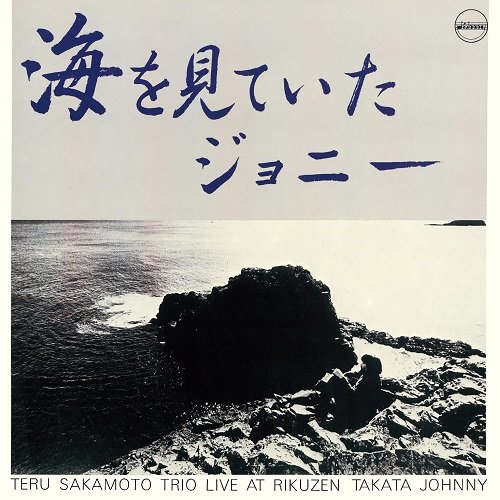
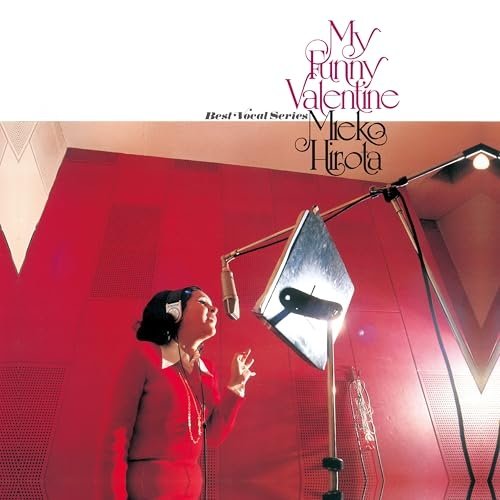
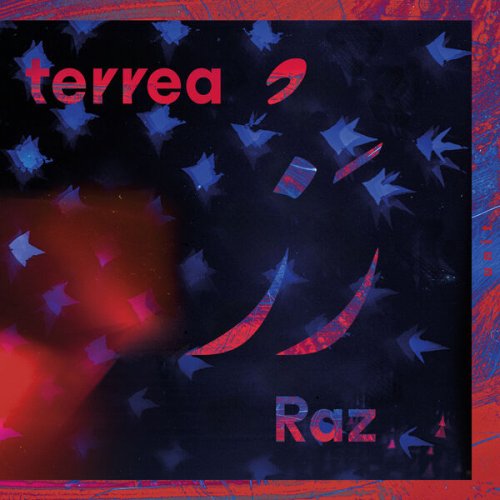

![Sonny Stitt & Red Holloway - Forecast: Sonny & Red (Remastered) (2026) [Hi-Res] Sonny Stitt & Red Holloway - Forecast: Sonny & Red (Remastered) (2026) [Hi-Res]](https://www.dibpic.com/uploads/posts/2026-02/1770394432_ssrh500.jpg)
![Oulu All Star Big Band, Ingá-Máret Gaup-Juuso and Jukka Eskola - Davvi Oktavuohta - Pohjoinen yhteys (2026) [Hi-Res] Oulu All Star Big Band, Ingá-Máret Gaup-Juuso and Jukka Eskola - Davvi Oktavuohta - Pohjoinen yhteys (2026) [Hi-Res]](https://www.dibpic.com/uploads/posts/2026-02/1770364798_k6yo0dxz10jkv_600.jpg)
